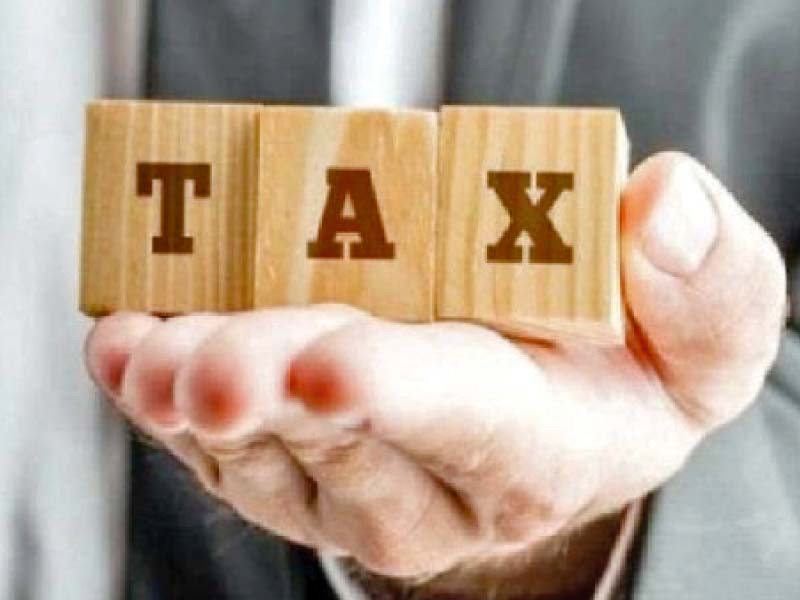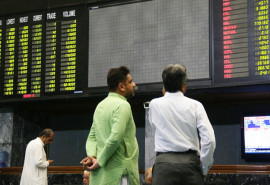
The coalition government has given an unprecedented Rs2.24 trillion in tax exemptions during the outgoing fiscal year, a mind-boggling figure that will further weaken the case of Pakistan in the eyes of international financial institutions and foreign nations.
The Rs2.24 trillion worth of tax exemptions were 28% higher than the previous fiscal year. They were equal to 43% of the total exemptions given by the Pakistan Tehreek-e-Insaf (PTI) government during its less than four-year tenure, according to the figures released on Thursday.
Finance Minister Ishaq Dar unveiled the Pakistan Economic Survey 2022-23, which showed that there was a 28%, or Rs483 billion, surge in the cost of tax exemptions in just one year. This comes despite the fact that every year the government withdraws the tax exemptions.
The Rs2.24 trillion in tax exemptions in just one year was more than the total cost of building the big Diamer-Basha dam. Cumulatively, the previous government had given Rs5.2 trillion in tax exemptions during four years.
The tax exemptions have been approved over the years and are protected under tax laws. But no government has been able to curtail them.
“The tax expenditure for fiscal year 2022-23 has been estimated at Rs2.239 trillion” on account of income tax, sales tax and customs duty concessions, the Economic Survey stated.
The withdrawal of tax exemptions has remained part of every programme that Pakistan signed with the International Monetary Fund (IMF). Still, every successive government has not only managed to protect these exemptions but also added more names to the list of beneficiaries. The Rs2.24 trillion worth of exemptions can become a thorny issue during loan negotiations with the IMF or at the time of seeking any budget support loan from the World Bank in the name of tax reforms.
Income tax
As against Rs399 billion worth of income tax exemptions given in the previous fiscal year, the FBR has estimated the cost of exemptions at nearly Rs424 billion this year, according to the survey. The Rs424 billion was equal to 19% of the total cost of exemptions given in the current fiscal year. Around Rs14.5 billion worth of income tax exemptions were given on account of various allowances, which were more than the previous year. The government also gave exemptions of Rs52 billion as tax credits, which were Rs13 billion lower than the last year.
Similarly, Rs232 billion exemptions were given on total income under the Second Schedule of Income Tax Ordinance.
About Rs4.4 billion was lost due to the reduction in tax liabilities, far higher than the previous fiscal year. Another Rs69 billion was lost on account of exemptions from “specific provisions”, which was also higher than last year.
About Rs27 billion worth of income tax exemptions were given on account of miscellaneous exemptions, which the FBR did not explain. These tax exemptions were also availed by the judges of superior courts, president of Pakistan, military generals, on allowances of federal bureaucracy, income of pensioners and army institutions.
Sales tax
There was a 28% increase in sales tax exemptions which grew from slightly over Rs1 trillion in the last fiscal year to Rs1.3 trillion in the current year. In absolute terms, the cost of sales tax exemptions jumped by Rs280 billion, primarily due to exemptions on petroleum products.
During the outgoing fiscal year, the government kept sales tax at 0% on petroleum products but it was charging a fixed levy of Rs50 on every litre of petrol and diesel.
According to the survey, the government sustained a loss of Rs633 billion due to sales tax exemptions on petroleum products.
The share of sales tax exemptions increased to 58% in the total tax exemptions.
An amount of Rs140 billion was lost on account of exemptions on products which were protected under the Fifth Schedule of the Sales Tax Act, showing a phenomenal increase over last year’s cost of Rs11 billion. The Fifth Schedule relates to the zero-rated tax system.
There was a steep reduction in the exemptions given to importers, which reduced from Rs527 billion to Rs258 billion primarily because of low imports.
In addition to that, Rs133 billion exemptions were given on local supplies, which was Rs100 billion less than the previous year.
The government charges reduced sales tax on various goods, which cost Rs130 billion in the current fiscal year, down from the previous year due to low sales.
These exemptions are given under the Eighth Schedule of the Sales Tax Act, which allows the imposition of lower-than-standard 18% sales tax. Another Rs1 billion was lost owing to sales tax exemptions on mobile phone sales, showing a massive reduction in one year due to the withdrawal of the reduced rates.
Customs duty
The cost of customs duty exemption increased to Rs522 billion against Rs343 billion in the previous year. There was a rise of Rs172 billion, or 52%, over previous year, according to the survey. The government sustained Rs193 billion in tax losses due to the concessions given to the automobile sector, oil and gas exploration sector and China-Pakistan Economic Corridor, higher by Rs132 billion in one year.
Around Rs173 billion worth of duties were lost under the Fifth Schedule of the Customs Act, which deals with goods exempted from customs duties. This cost of exemption was Rs3 billion more than last year.
Published in The Express Tribune, June 9th, 2023.
Like Business on Facebook, follow @TribuneBiz on Twitter to stay informed and join in the conversation.



1672385156-0/Andrew-Tate-(1)1672385156-0-165x106.webp)














COMMENTS (3)
Comments are moderated and generally will be posted if they are on-topic and not abusive.
For more information, please see our Comments FAQ